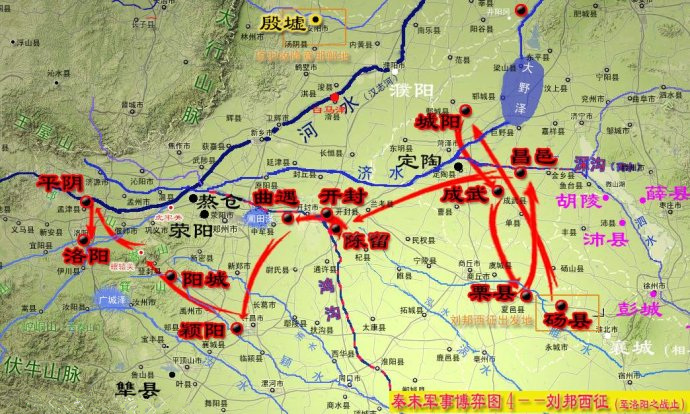The End of Qin Dynasty
秦朝的灭亡
In the beginning of October 207 B.C, Zhao Gao forced Huhai to commit suicide and replaced him with Fusu’s son,Ziying (子婴).
公元前207年十月初,赵高强迫胡亥自杀,另立扶苏之子子婴为帝。
Note that the title of Ziying was “ king of Qin” to reflect the fad that Qin no longer controlled the whole of China.
子婴的称号是秦王,这也反映了秦朝大势已去,不再控制整个中国。
The Chu-Han contention ensued.
随之而来的是楚汉之争。
Ziying soon killed Zhao Gao and surrendered to Liu Bang (刘邦)in the beginning of December 207 B.C.
子婴登机之后不久便设计诛杀赵高,并在公元前207年十二月初投降刘邦。
But Liu Bang was forced to hand over Xianyang and Ziying to Xiang Yu.
但刘邦被迫将咸阳和子婴拱手让给项羽。
Xiang Yu then killed Ziying and burned down the palace in the end of January 206 B.C.
公元前206年一月末,项羽杀死子婴并火烧咸阳的宫殿,

Thus the Qin dynasty came to an end, three years after the death of Qin Shi Huang, and less than twenty years after it was founded.
至此,秦朝付之一炬,走向了灭亡,而这距离秦始皇驾崩仅三年,距离秦朝建立也不过20年的时间。
Although the Qin Dynasty was short-lived, its legalist rule had a deep impact on later dynasties in China.
虽然秦朝是个短命的王朝,但其法制规则对后世产生了深远的影响。
The imperial system initiated during the Qin dynasty set a pattern that was developed over the next two millennia.
由秦朝所创的皇权系统在之后的2000年一直被后世所效仿。












